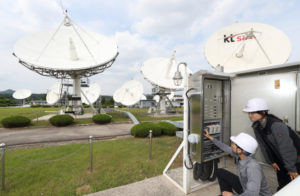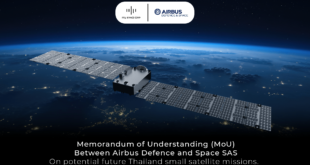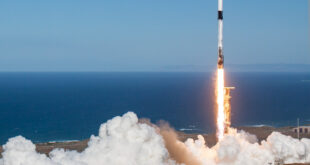
South Korean satellite operator KT Sat is now poised to provide near-global maritime and inflight connectivity through its new satellites and expanded teleport, in what is becoming an increasingly crowded market.
With the launches of the Mugunghwa-7 and -5A satellites last year, the company can now provide satellite services covering the Korean Peninsula, the Philippines, Indochina, the Middle East, Mongolia, South Asia, and the oceans including the East Sea, the Southeast China Sea, the Bay of Bengal, and Arabian Sea, which KT Sat believes positions it to play a pivotal role as the biggest teleport in Asia, according to the company.
At its KT SAT Geumsan Satellite Centre, 45 satellite antennas are in place to communicate with five KT SAT-owned satellites in orbit, to enable 510 vessels in waters and 333 aircraft in the air to stay connected with onshore areas, providing secure communications, and remote management and control of ships and airplanes. The Geumsan Satellite Centre sits on a vast landmass of around 61,000 square meters in Geumsan County in South Chungcheong Province in South Korea.
“Thanks to the new satellite launch last year, we are emerging as a real global satellite business, and we are trying to transform from a middlemen business into a service platform business,” said Han Won-sic, President of KT SAT, in a report in the Korea Times.
Han went on to describe that KT Sat is developing four new connectivity services: Satellite Over Things; Connected Ship; Maritime Very Small Aperture Terminal; and In-Flight Connectivity.
The company said these upcoming services will be more secure, with applied quantum cryptographic communications technology and private blockchain technologies for perfect data security.
Han told the Korea Herald that his company is looking at Southeast Asian markets this year, such as Indonesia, Pakistan, Myanmar, and Thailand; the company aims to reach 20 billion Won (U.S.$18.7 million) in overseas sales, which would account for 46 percent of expected annual sales.
“Not only the Southeast Asian region, but also North Korea could be our next market where we think we can contribute to the upbeat mood for reunification by helping establish satellite-based telecommunications infrastructure,” Han concluded.





